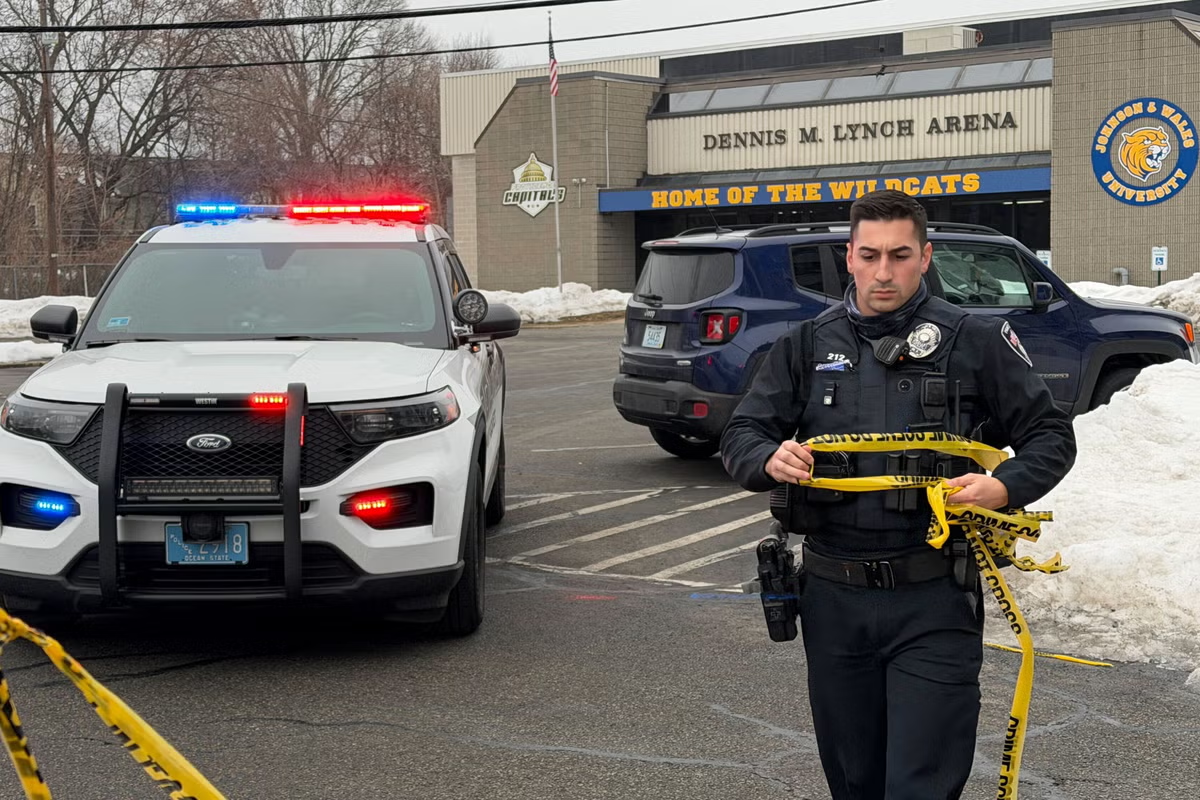Gone Too Soon: New Orleans Mourns the Tragic Death of Young Officer After High-Risk Cosmetic Surgery in Miami
NEW ORLEANS, LA — A deep wave of sorrow, disbelief, and concern has gripped the New Orleans community after the tragic passing of a 26-year-old woman who served as a dedicated police officer, just days after undergoing a high-risk cosmetic procedure in Miami. The loss of this vibrant young public servant has not only left her family and colleagues in mourning but has also reignited urgent conversations around the dangers of elective surgeries, particularly Brazilian Butt Lifts (BBLs), which have seen a sharp rise in popularity despite growing safety concerns.
The young officer had reportedly traveled to Miami to undergo a BBL procedure — a cosmetic surgery that involves the transfer of fat from other parts of the body to the buttocks. Though the surgery is in high demand for its dramatic reshaping effects, it is also widely regarded in the medical community as one of the most dangerous elective procedures due to its complex nature and high complication rate.
What was meant to be a routine trip to boost confidence and personal well-being tragically ended in heartbreak. Just a few days after the operation, complications arose that led to the sudden and devastating loss of life, leaving loved ones shattered and a city struggling to come to terms with the unthinkable.
A City in Mourning
As news of her passing spread across the city, the response was swift and heartfelt. Friends, family members, fellow officers, and community members gathered to grieve, to remember, and to reflect on the life of someone whose presence had been a source of light, courage, and commitment.
She was known among her peers not only for her professionalism and integrity in uniform but also for her warmth and compassion off duty. She served her community with pride and had dreams of rising through the ranks. In her personal life, she was known for her laughter, love of music, and dedication to fitness and personal growth.
In the days since her passing, vigils have been held in several neighborhoods. Community leaders have spoken publicly, honoring her legacy and emphasizing the emotional toll her sudden death has taken on those who knew her. “She was a role model for so many young women,” said one local community organizer. “Her loss is not just a personal tragedy; it’s a community loss.”
The Rise and Risks of BBL Procedures
This tragedy comes amidst a growing public health debate over the safety of Brazilian Butt Lift surgeries. According to multiple studies and professional surgical organizations, BBLs have one of the highest mortality rates among cosmetic procedures — primarily due to the risk of fat embolism, a condition in which fat enters the bloodstream and blocks critical blood vessels, often with fatal consequences.
Despite these risks, the procedure has exploded in popularity over the past decade, fueled by social media trends, celebrity endorsements, and the increasing pressure many women feel to conform to certain beauty standards. Clinics in cities like Miami, Los Angeles, and Houston have seen a boom in business, sometimes resulting in corners being cut or procedures being performed at high volume with less individual oversight.
Medical professionals continue to warn that not all surgical centers maintain the same safety standards. In many cases, patients travel to less regulated clinics for more affordable prices, which can increase the risk of post-operative complications, infections, or worse.
The young officer’s story is tragically not an isolated one. Health experts point out that while millions undergo plastic surgery without incident, the risks of procedures like BBLs should never be underestimated. Patients must be fully informed, and stronger regulatory oversight is needed to ensure all cosmetic surgeries meet rigorous safety protocols.
A Personal Journey and a Public Reckoning
Those close to her say she had done her research, consulted with professionals, and was excited about this next chapter in her life. For her, the procedure wasn’t about vanity, they explain, but rather a personal decision rooted in self-esteem and empowerment. She wanted to feel more confident, to step into her womanhood on her own terms — a sentiment shared by many women worldwide.
But the consequences were far more severe than anyone could have predicted. Her story is now prompting countless others to pause, reflect, and reconsider their own plans or pressures to alter their appearance through surgery.
Social media has become a powerful platform for the expression of both grief and advocacy. Many users, particularly women of color, have taken to Instagram, TikTok, and Facebook to honor her memory while discussing the complex intersections of beauty standards, mental health, and the risks associated with elective procedures.
“We’ve got to start talking about what’s driving so many women to go under the knife,” one user posted. “We’ve got to talk about self-worth, about how we’re taught to value ourselves — or not.”
Law Enforcement Family in Grief
Within the New Orleans Police Department, the news has been met with deep sorrow. Fellow officers describe her as a rising star — a dedicated professional who approached every assignment with discipline, humility, and purpose.
Her precinct held a private memorial in her honor. Officers stood side by side, many with tears in their eyes, paying tribute to someone they not only worked with, but deeply admired. A photo of her in uniform, smiling, was placed at the center of the gathering. It was a reminder of the bright future that was lost too soon.
Counseling services have been offered to the department, and plans are underway for a public ceremony that will allow the wider community to come together in tribute. Her colleagues continue to wear black mourning bands over their badges in silent solidarity.
Conversations on Mental Health and Body Image
While the loss remains a raw and painful wound, her death is also sparking vital dialogue about body image, societal expectations, and the importance of mental health support for those navigating issues of self-esteem.
Local therapists and wellness coaches are urging individuals to seek out emotional support and education before undergoing any physical transformation. They’re emphasizing the need to make such decisions from a place of empowerment rather than pressure, and to prioritize safety and self-love above fleeting trends.
Some advocacy groups are calling for more stringent regulations on how cosmetic surgery is marketed — particularly on social media platforms, where filters and curated images can create unrealistic expectations and normalize risky procedures.
Parents, educators, and mentors are encouraged to engage young people in open discussions about beauty standards and body positivity. In schools and community centers, workshops and support groups are being organized to address the growing mental and emotional toll of body-related pressures.
A Legacy of Strength, Service, and Sisterhood
Though her life ended far too soon, her legacy continues to ripple outward. Friends are creating a scholarship fund in her name to support young women pursuing careers in public service. Others are launching awareness campaigns about cosmetic surgery safety, hoping to prevent similar tragedies.
There are plans for a mural in her neighborhood, painted by local artists, to remind everyone of the joy she brought into the world and the values she stood for — resilience, loyalty, courage, and authenticity.
In every conversation, one theme continues to rise: she was loved. Deeply. Fiercely. Unconditionally. Her loss has left a void that cannot be filled, but also a memory that will not be forgotten.
Final Reflections
What began as a personal decision to improve self-image has resulted in a tragedy that echoes far beyond one life. It is a stark and sobering reminder that behind every surgery is a real person — with dreams, loved ones, and futures that deserve to be protected.
Her story, while heartbreaking, may yet save lives. Through education, advocacy, and policy reform, her passing might help shine a light on issues long buried in silence: the unrelenting pressure to meet beauty ideals, the hidden risks of elective surgeries, and the need for greater compassion — both toward ourselves and one another.
In New Orleans and beyond, people continue to say her name, to remember her service, her smile, and the powerful light she brought to the world. In the face of tragedy, they are finding purpose. And in their grief, they are finding the strength to ensure her story brings change.
Her life mattered. And even in loss, her story continues to inspire.




